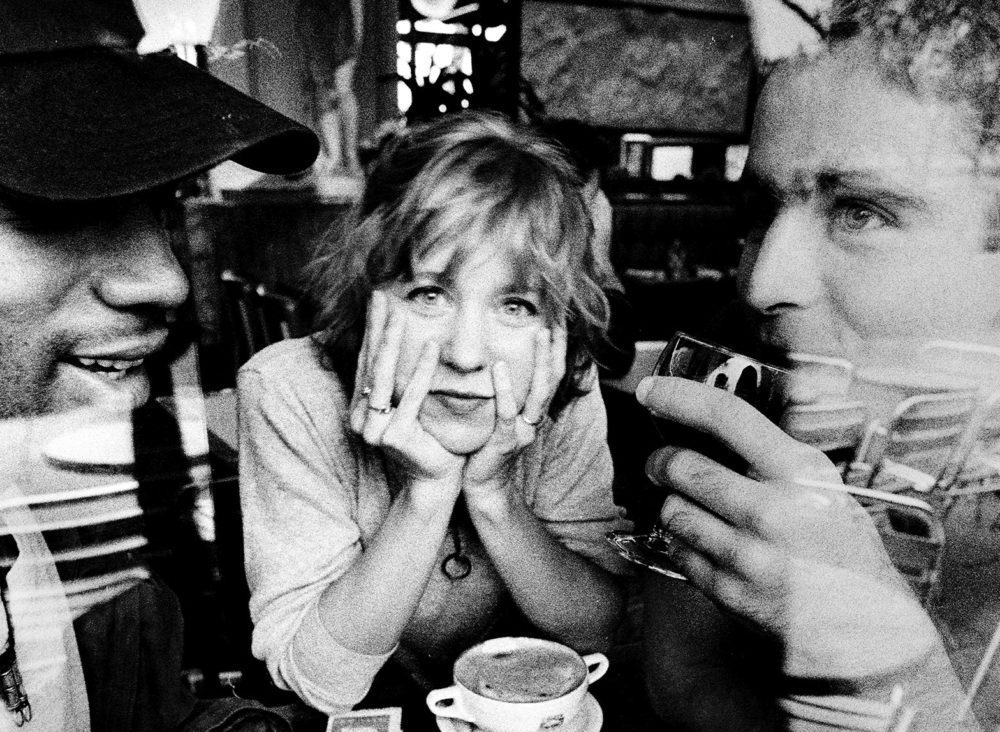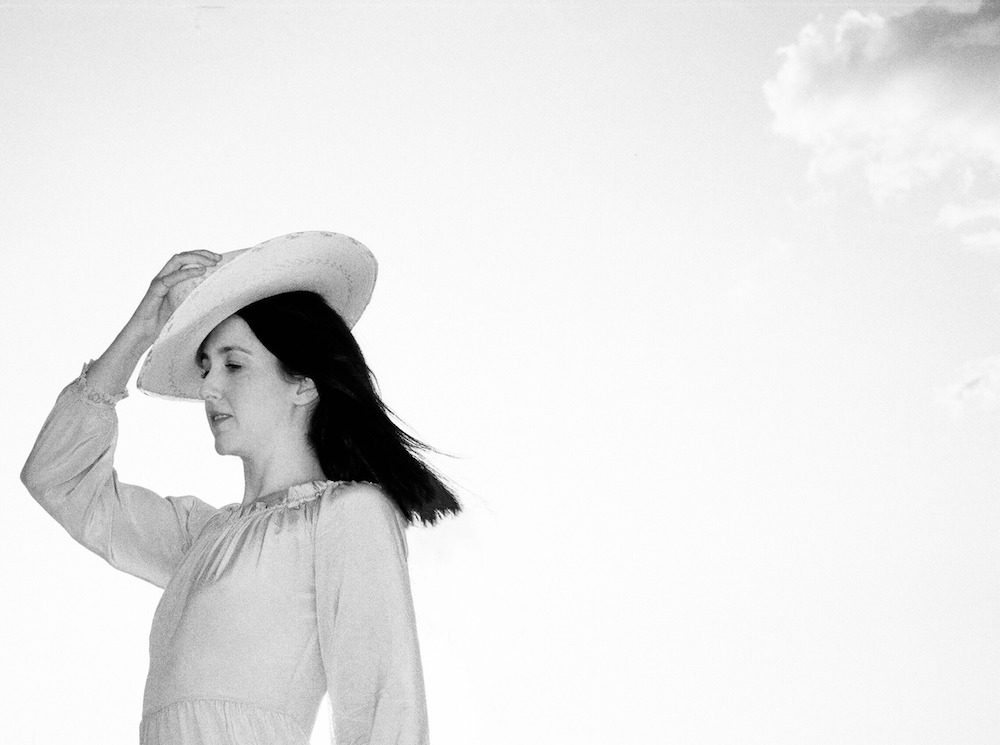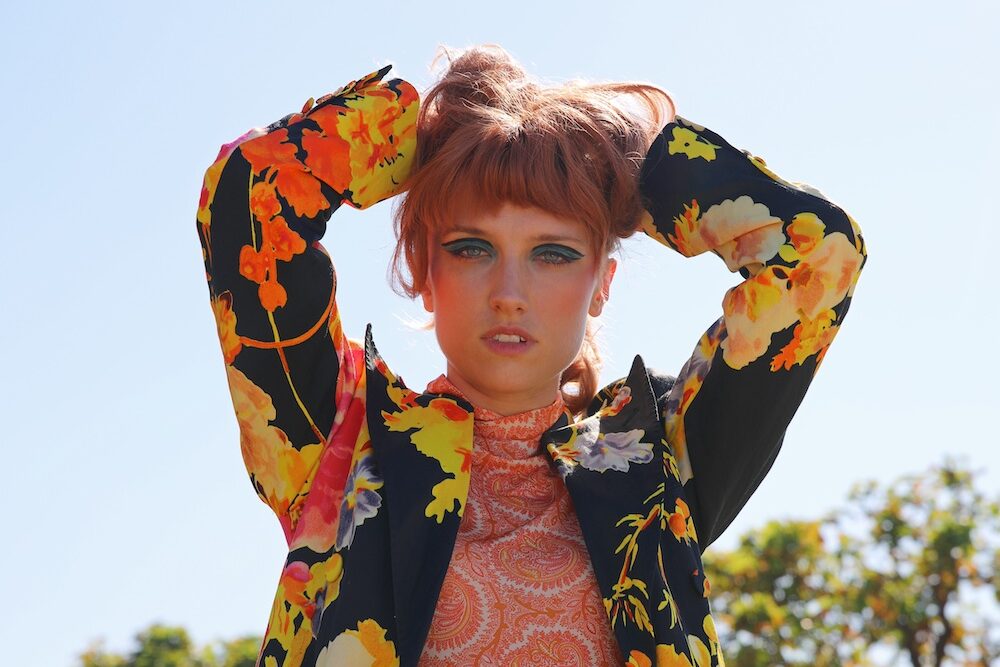Kristin Hersh Reflects on Throwing Muses’ 10th Studio Album Sun Racket


Boston-based alt-rock band Throwing Muses have been known for decades for both unusual lyrics and unexpected musical choices. On their latest album Sun Racket, the band’s 10th studio album and a followup to 2013’s Purgatory/Paradise, lead singer and guitarist Kristin Hersh, drummer David Narcizo, and bassist Bernard Georges deliver the same musical and lyrical quirks the band has mastered, but in a way that departs from the band’s past discography as much as it does from convention.
In contrast to some of the band’s early hits, like 1991’s fun, beachy “Not Too Soon,” Sun Racket has a decidedly dark vibe to it. Hersh’s low, growling voice, the slow, trance-like electric guitars and use of minor keys create a somber sound closer to mid-nineties contemporaries like Soundgarden and Alice in Chains.
Each song paints a little vignette from Hersh’s life, putting a poetic spin on everyday situations with abstract but vivid imagery. “Milk at McDonald’s,” for instance, describes the day a man known as the “bee guy” came to her house to exterminate bees in her child’s room, reflecting on the absurdity of humans and animals coexisting: “Every killer bee in the kids’ room/Every coyote in the freezer/Gone and gone.” The next track, “Upstairs Dan,” recounts the time she was rescued by a lifeguard, convinced as she held hands with him under the water that they were going to drown together. She tells the story in a way that sounds almost like an (albeit dark) fairy tale: “Helicoptering rabbits/The street cold as its mist/Omnipotence of boy/Drowning hand in hand with Daniel.”
Water is perhaps the most consistent theme throughout the album — sometimes used literally, sometimes metaphorically. “If I were under you/I’d be underwater/And lighting matches under water I found you/Dark blue,” Hersh sings in the opening track, “Dark Blue.” In “Bywater,” she sings of a goldfish in the toilet who is actually Freddie Mercury, “a mustached amputee heading out to sea.”
The album was recorded in New Orleans, LA, San Francisco, and New England, and many of the images are inspired by these varying locations. LA, in particular, is behind the album title. “The imagery is so California all over this record,” says Hersh. “California is not always shiny the way people think of. LA is often really rough-hewn, and I like the clatter of that. I like the brightness of it that is unapologetic but is not necessarily man-made.”
While the band is known for disorienting time signature changes and unfamiliar chord progressions, the songs on Sun Racket are intentionally steady, repetitive, and hypnotic; Hersh describes them as drone-like. “For the first time in this band’s life, the songs were asking us to just grind out this mood,” she says. “We had to just throw up our arms and do the right thing by the songs, and after that, it’s not my concern if anyone pays attention.”
Hersh describes her music as having a life of its own, which often overrides her own plans for the production. “I always know exactly where I want to place every mic the day I step foot in the studio on the first day — which mics I want to use, which amplifiers, where the kick-drum is going to go — I know everything, and I realize within the first hour that I’m completely wrong,” she says. “I do this every time. This is approaching 40 years of recording. I had good ideas, walked all over the songs, and dressed them up for picture day, and you end up with a little kid who doesn’t look like he does in the picture.”
Most of Hersh’s sonic experimentation happens in what she describes as an instrumental atmospheric layer in her songs, where she incorporates heavy distortion, giving the music a “ghostly element.” In songs like “Kay Catherine,” drawn-out, warped harmonies give the music a dreamy, psychedelic feel.
Hersh has been playing in bands since she was 14 and started Throwing Muses with her stepsister Tanya Donelly in 1981 in Newport, Rhode Island. They signed with Warner Brothers subsidiary Sire in 1987, but Hersh eventually bought herself out of her contract to eschew what she viewed as a lack of artistic freedom, especially for women, in the music industry.
“I was no longer willing to participate in an industry that is degrading to women,” she says. “They said, ‘there are tons of girls who will whore themselves out to have your place,’ and I said, ‘great, let me go. I want to be a real woman, and real women are humans. We have intelligence, work ethic, and passion; we are not 2D images that are manipulating men with fashion.'”
For Hersh, her work has always been in service to the music itself. “In the musical world, you’re tasked with not thinking ahead; you’re tasked with focus,” she says. “I love that the songs are always worth listening to, are always smarter than you. First thing I had to do as a real songwriter is shut up; songs say what they need to.”
Follow Throwing Muses on Facebook for ongoing updates.




